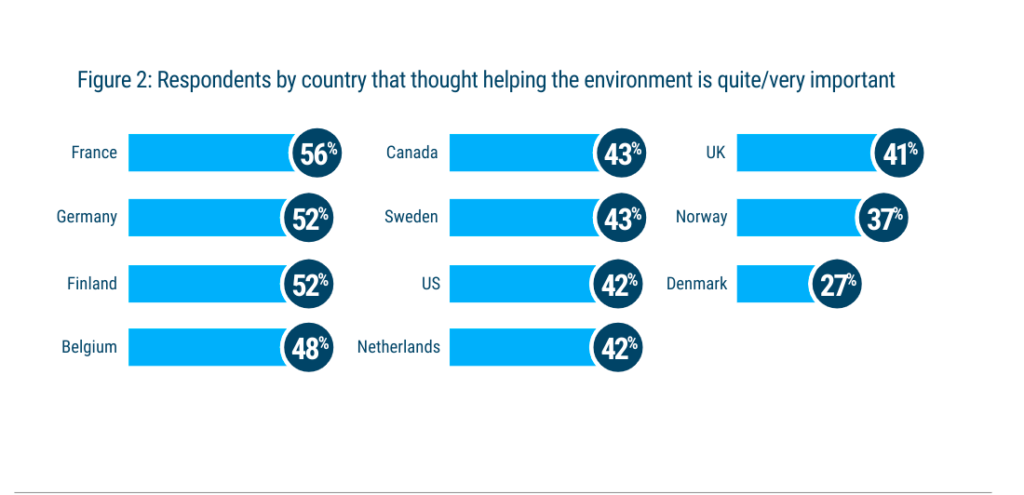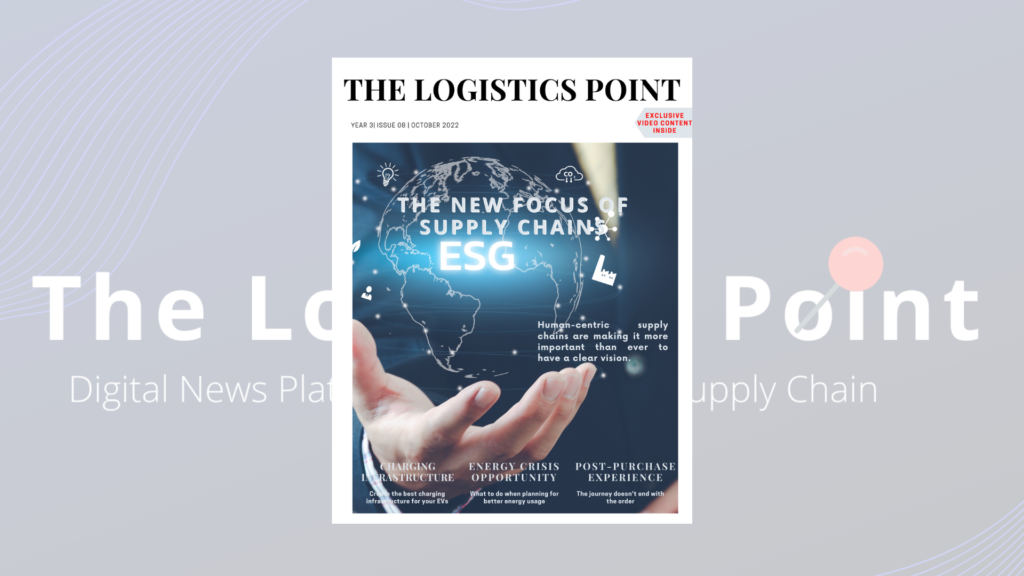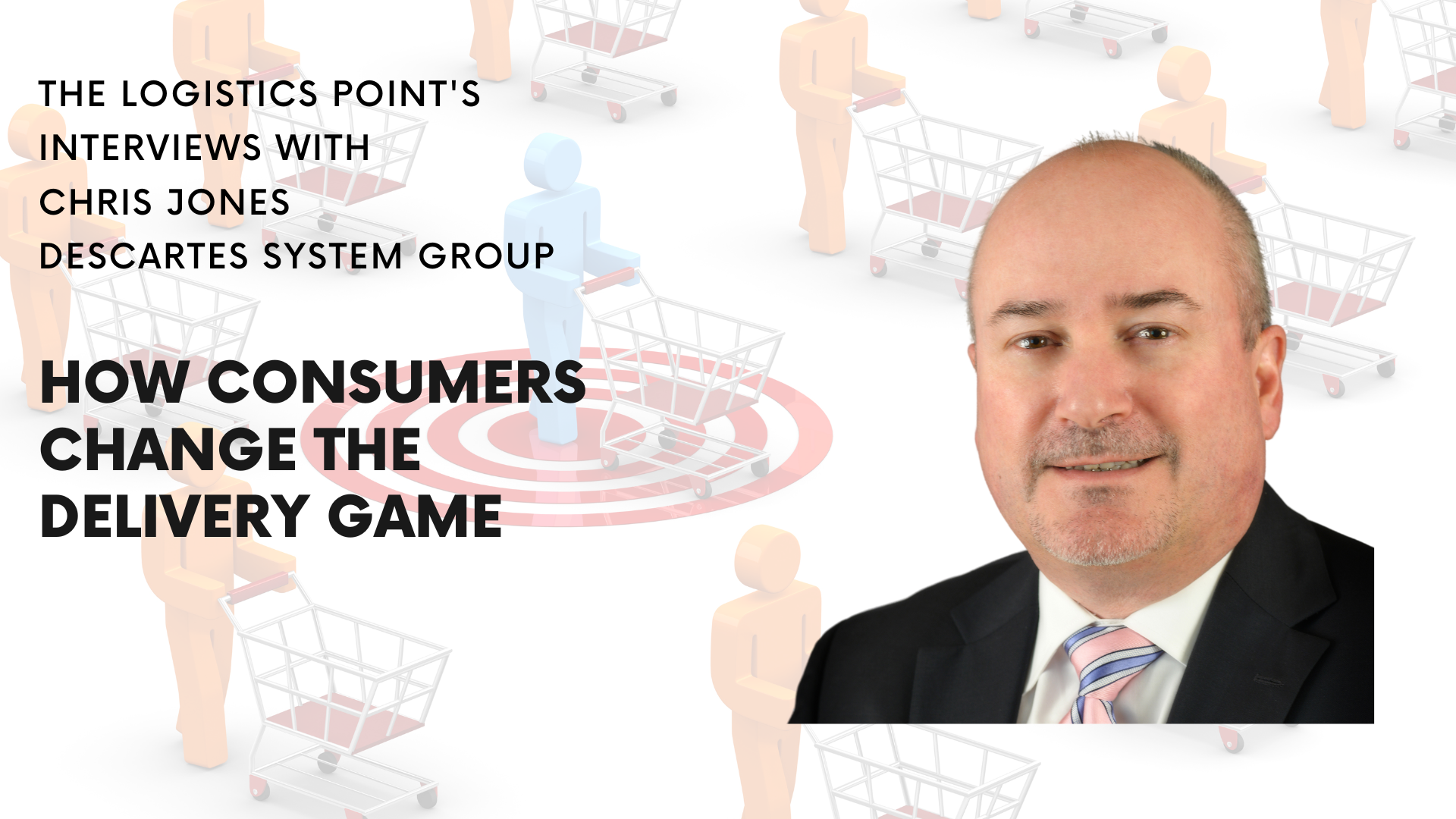Sponsored content
Consumers have changed and what was accepted just a few years ago is now a taboo. Are retailers and carriers ready for this change? What do consumers really want? We spoke to Chris Jones, EVP Industry & Services at Descartes Systems Group, about a survey the company conducted amongst 8000 consumers across The US, Canada, Europe and UK. The findings show how attitudes have changed and where retailers might be failing. You can watch the full video interview now.
Chris, Descartes’ recent report is an interesting read for everyone interested in the future of retail and how carriers can support it. Can you give us a summary of the findings?
Chris Jones: What we really wanted to know is how consumers felt about sustainability and in-home delivery. Home delivery has taken off over the last number of years but at the same time, there’s a lot of fear and anxiety around what it does to the environment.
We wanted to find out a few things like what sustainability means about purchasing decisions and ultimately, how people felt about Home Delivery. We interviewed 8000 people across the US, Canada, the UK and in eight European countries and what we found was very insightful.
Get the report from Descartes Systems Group: Retailers: Sustainability is Not a Challenge, It’s an Opportunity
There were some variations but the big piece is that consumers make purchasing decisions around the environment, but also they’re very interested in sustainable delivery options. What I think is really great about that is that most of the options that we presented and that did get a significant amount of pickup, like 50%, were ones that are actually lower cost delivery options.
We found that sustainable delivery options could help the environment, make consumers happier and retailers can improve their bottom line.

Consumers clearly care about the environment but the survey shows there is a difference between what retailers are doing and how it is being perceived by people? Why is this?
Chris Jones: I think the first reason is because retailers are not asking questions about sustainable delivery. What is really interesting is that a lot of retailers do not think of delivery as a value adding process. If we asked retailers about their customers’ buying personas, they would all jump right into it. But on the delivery side they treat everything as equal and don’t understand that there are delivery personas.
Some people, for instance, will do anything for the lowest cost delivery option. Others would do what would help the environment. There are different classes here. And if you can serve those personas, you will do a better overall job of attracting customers and keeping them.
Our view is that the delivery has been treated as either something that has to be done or there is a monolithic approach. In fact, it’s much broader than that.
It all sounds very logical but if I am a retailer, how do I do all of these?
Chris Jones: Be more proactive and show more options to the consumer. There are a couple of things that can be done and they don’t all have to happen at once. One is grouping deliveries. Amazon does this already and calls it Prime Day. People can get all of their orders on a specific day of the week, instead of getting them one by one. By doing this, carriers and retailers can instantly say it is more convenient and also more sustainable because they eliminate multiple deliveries and the carbon impact of them.
There are also delivery agents out there that offer more sustainable delivery services. They do things like carbon buyback programs, for example. The third thing is actually presenting delivery options to consumers and telling them which of their options are the most environmentally friendly. And that can be in a couple of ways. It can be everything from steering consumers to choose a specific day for individual orders or to combine orders and support dynamic grouping. Instead of a fixed day, you can create density by delivering in the same neighbourhood to all residents.
Get the report from Descartes Systems Group: Retailers: Sustainability is Not a Challenge, It’s an Opportunity
In our study consumers really want to know the impact of deliveries on the environment. In the next couple of years they will start expecting that retailers present the information about the impact. They don’t want to just know a specific option is more environmentally friendly but rather by how much and how significant it really is.

All of these sound like they are coming from the retailer but what is the role of consumers here?
Chris Jones: Over half of the consumers in the study said they were willing to accept a longer lead time from a company they felt was environmentally friendly. As a consumer we can decide that we do not want our order today or tomorrow.
I also think that people should start asking retailers about their environmental options and if they do not have any, ask them why that is? A key part is educating both consumers and retailers. Most retailers still think this is a challenge for their business. But in fact, it really could be quite the opposite. It could be something that attracts consumers and lowers their costs, and ultimately helps the environment.
Is there one answer that fits all categories of goods or should we approach them all in a different way?
Chris Jones: It definitely varies. There’s a lot more concern about the environmental impact of grocery home delivery, for example. In this category you want to be very heavily focused on how your delivery options help the environment. If you have a lot of consumers, who are buying organic products they certainly care about the planet. They will probably be much more inclined to ask about your sustainable delivery options.
Get the report from Descartes Systems Group: Retailers: Sustainability is Not a Challenge, It’s an Opportunity
Apparel, however, runs mostly on parcel networks. So, are you working on having more sustainable parcel delivery options? I think companies really need to look at their consumers and their delivery personas and see what delivery options they have now. Also look at how they want to model the options and present them to the consumer.
An interesting result from the survey for brick-and-mortar stores is that many consumers would still go and collect their orders from a store. This means they could have an advantage over online merchants and should speak more about the sustainability benefits of those options.
Also there is a substantial number of people who are willing to buy more from companies that are more environmentally friendly and known to be sustainable. So if you are a retailer, this is definitely worth the investment.
So what will consumers look for in the future from their retailers?
Chris Jones: I already mentioned the rise of EVs, as well as the wish to have a better understanding of the real impact delivery has on the environment. This is going to be more challenging for retailers as a lot of them use third parties. So they need to understand what their carriers are doing and what they offer. It is not just about the costs but also about the carbon footprint. And they’re going to need to be able to present that impact to the consumer at checkout.
In the future people would want more options and more transparency around the environmental impact. They also expect that retailers will take an end-to-end approach towards the environment. It is not going to be just about packaging or product, for example, but also delivery, returns, recycling and so forth.
A substantial number of people are willing to buy more from companies that are more environmentally friendly and known to be sustainable.
In order for all of these to happen, we would need to start working now. Do you think retailers have enough capacity, knowledge and investment power?
They absolutely need to start today. As I said earlier, you can do this in steps. The most sophisticated retailers that exist are already dynamically presenting sustainable delivery options and understand how it impacts consumer buying and the bottom line. However, they started years ago and the message for the others is to start now.
Get the report from Descartes Systems Group: Retailers: Sustainability is Not a Challenge, It’s an Opportunity
Companies can start with something more straightforward like order grouping. That is something that is not really rocket science. And then from there, you can just successively add environmentally friendly options.
I also think people need to take a step back and realise this is not a challenge but an opportunity. It is a way to make the consumer happy, help the environment and put more money to the bottom line. And once people grasp that situation when it comes to capacity, they will make it available.
Finally, where does Descartes Systems Group fit in this process?
First is education and is one of the reasons we did the survey. We also have a lot of resources around Best Home Delivery Practices and ebooks. When we speak with our customers and retailers we also try to advance a more holistic delivery strategy.
Second, we provide enabling technology. Our solutions help retailers and carriers develop and present eco-friendly delivery options to better serve the consumer and reduce delivery costs.
You can learn more about Descartes Systems Group report here. You can also watch the full video interview with Chris Jones now. ✷

